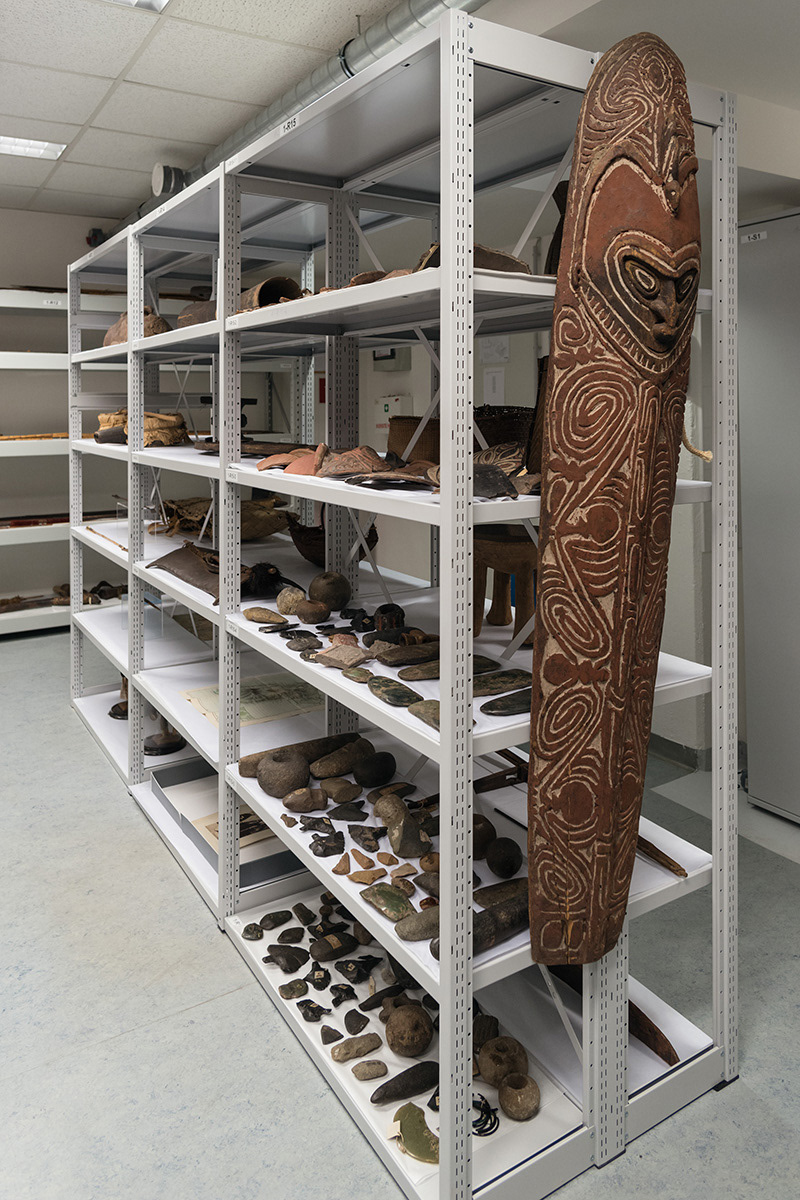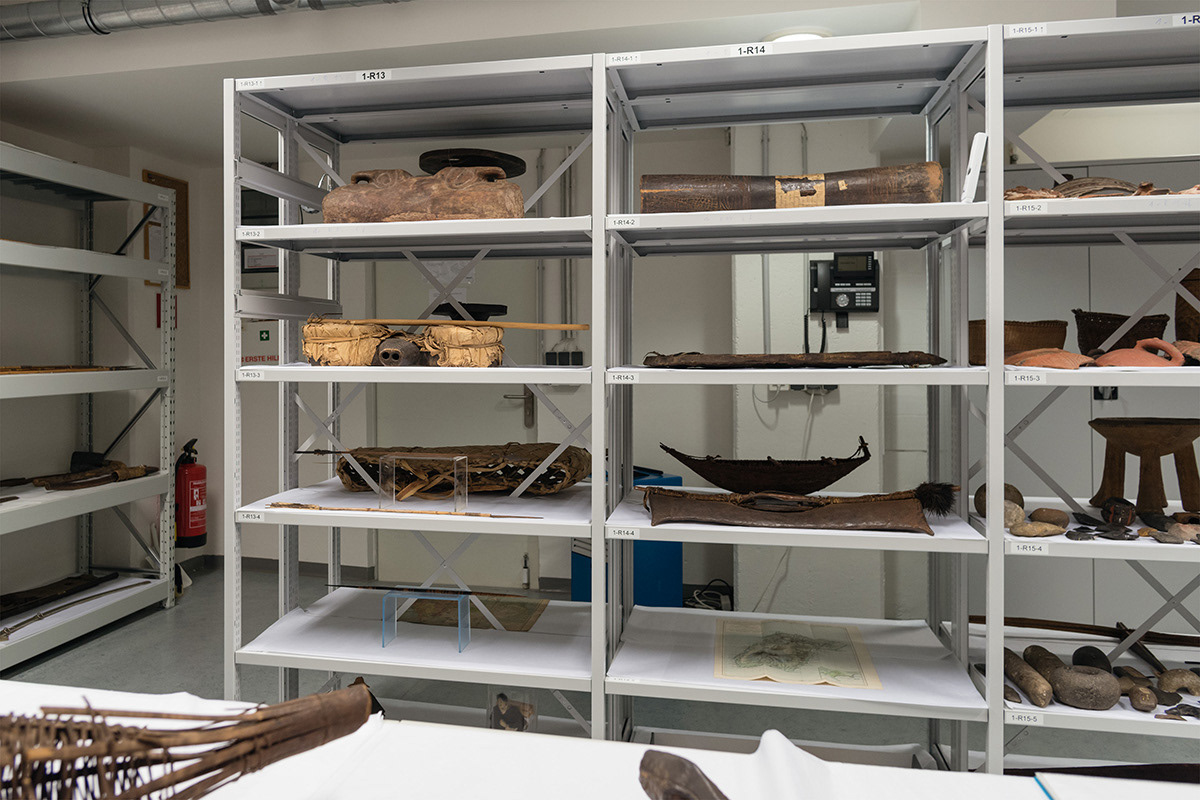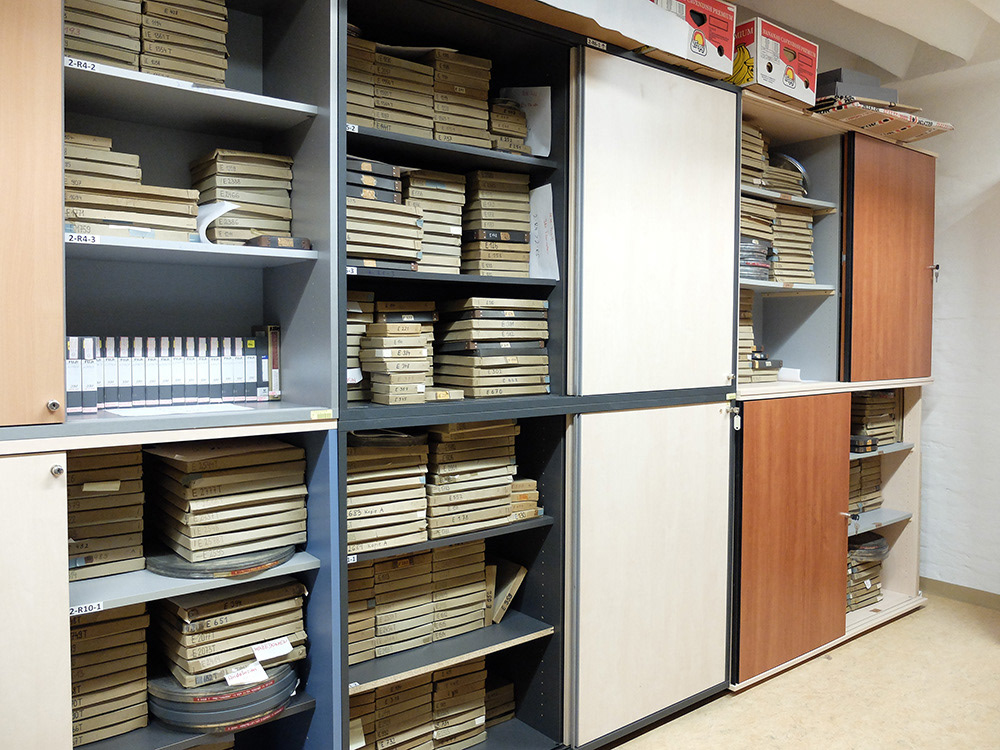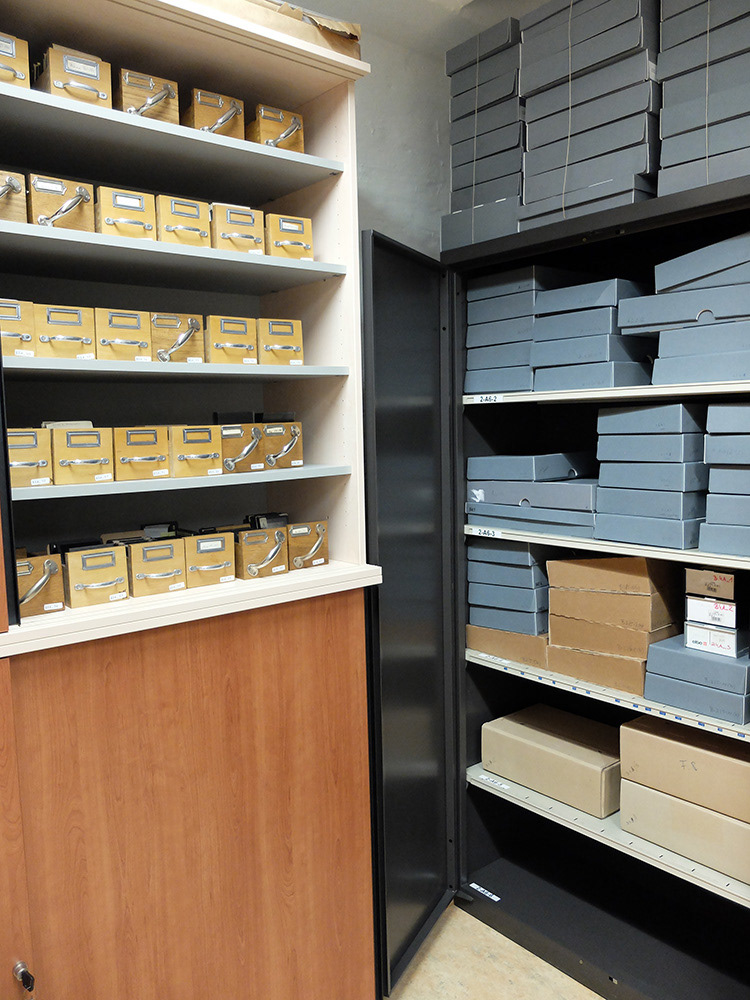
Object depot of the Ethnographic Collection of the IKSA. Photo: Wolfgang Kraus

Object depot of the Ethnographic Collection of the IKSA. Photo: Wolfgang Kraus

Archive of the Ethnographic Collection of the IKSA; films. Photo: Victoria Immervoll

Archive of the Ethnographic Collection of the IKSA, archival materials and slides. Photo: Victoria Immervoll
The object collection at the Institute for Cultural and Social Anthropology was created from the middle of the 19th century on and was expanded until the 1980s. The earliest objects can provide information about the beginnings of the collection, as they were labelled "anthropological-ethnographic institute". Private collectors, staff members of the anthropological-ethnographic department of the Natural History Museum, members of the SVD Order and staff members of the former Institute of Ethnology (today: Institute of Cultural and Social Anthropology) brought the objects into the collection, which were acquired through donations, collecting or exchange with other institutions. The collection was purposefully built up as a research and teaching collection and used to support teaching, publications and research. Based on these and the research interests visible in them, the perspectives of the collectors as well as their ideology, worldview and religion can be determined today.
During National Socialism, the Institute was headed by Hermann Baumann. He brought about 1,500 objects from the Museum for Ethnology in Berlin to Vienna. A second large part of the collection was transferred by Hermann Baumann from the museum in Berlin to Vienna in May 1941 in order to be able to guarantee a "descriptive teaching and study collection". This part of the collection, comprising about 1,500 objects, was returned to the museum in Berlin in two parts (1965 and 2005). Today, the Institute's collections comprise approx. 1,200 objects, various archival materials, a photo collection with approx. 6,000 photos (b/w), 500 slides and approx. 3,200 glass plates, as well as approx. 1,200 films.
In 2000, a permanent exhibition was realised at the Institute for the first time with the help of students. This was followed by the creation of index cards of all collection items and a gradual digital registration in the Unidam database of the University of Vienna, which made a virtual viewing possible for teachers and students.
After several years of neglect, work began in 2017 on reprocessing the collections and setting up suitable storage rooms, which were opened in 2018.
The digitised holdings are available to interested parties and members of the University of Vienna for research and projects in the "Phaidra" database. In addition, workshops, courses, research and guided tours are organised. On a case-by-case basis, ethnographic objects can be lent for exhibitions. The collections are only accessible by prior appointment
